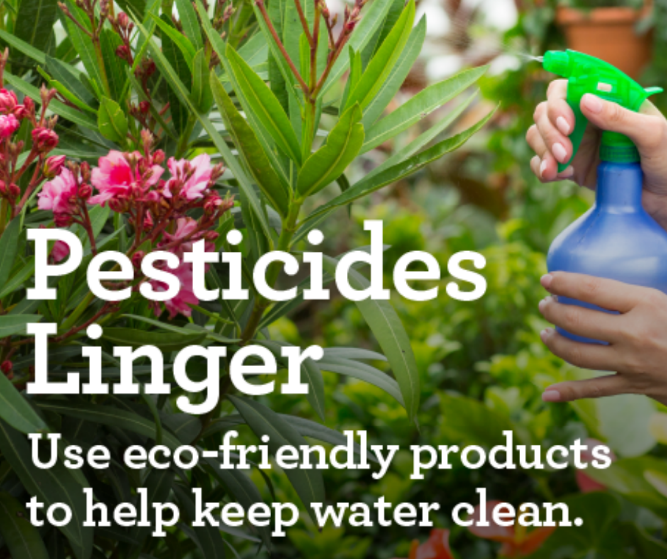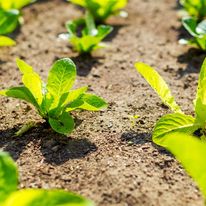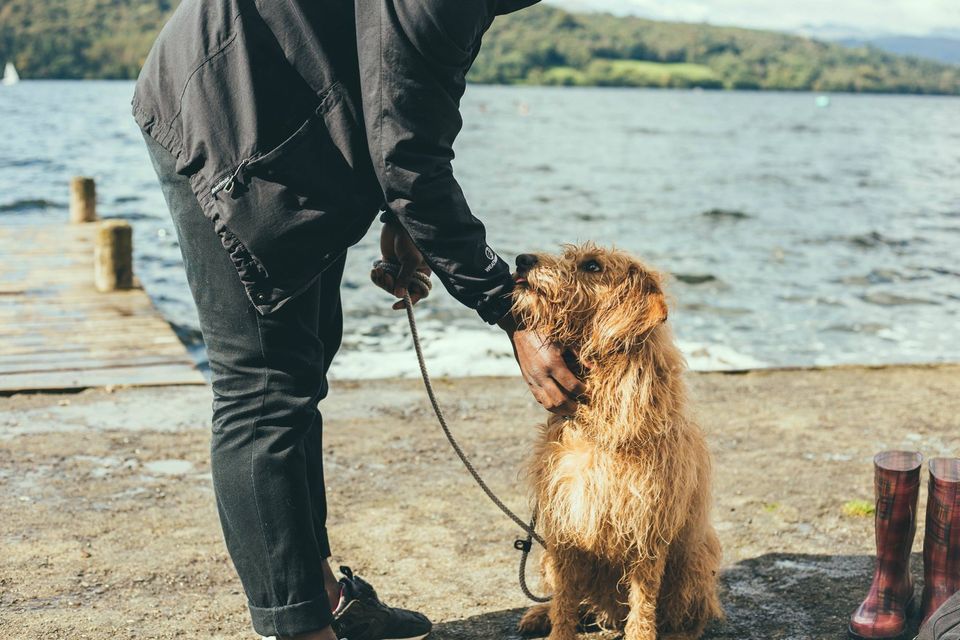Yards, Gardens, and Pets
Many pesticides can pose a risk to children, pets, and the environment.
 Pesticide products are not healthy for your garden and can enter our waterways through run off and stormwater. There are many effective, less-toxic products available in stores to manage pests and diseases. Please use pesticide products only when needed, not when it rains, and according to the instructions on the label. For more information on less toxic gardening solutions, and how to dispose of pesticides property, check out the following brochures:
Pesticide products are not healthy for your garden and can enter our waterways through run off and stormwater. There are many effective, less-toxic products available in stores to manage pests and diseases. Please use pesticide products only when needed, not when it rains, and according to the instructions on the label. For more information on less toxic gardening solutions, and how to dispose of pesticides property, check out the following brochures:
For additional information on eco-friendly products, pest control and sustainable gardening check out our partners Our Water our World and Contra Costa County Master Gardeners websites.
Compost Your Yard and Food Waste
 Although leaves and organic waste are biodegradable, their breakdown process robs valuable oxygen from the water. This process can stress and even kill fish and aquatic life. By composting your grass clippings, yard waste, and other biodegradable materials (e.g. banana peels and eggshells), you will return valuable nutrients and moisture to the soil.
Although leaves and organic waste are biodegradable, their breakdown process robs valuable oxygen from the water. This process can stress and even kill fish and aquatic life. By composting your grass clippings, yard waste, and other biodegradable materials (e.g. banana peels and eggshells), you will return valuable nutrients and moisture to the soil.
What you can do to help:
- Never put yard waste in storm drains or creeks
- Use your green waste container
- Leave grass clippings on the lawn
- Learn how to compost at home or about compost services available in your area by visiting the Contra Costa County website
Dispose of Pet Waste Properly
 When it rains, pet waste left on lawns, beaches, trails, and sidewalks washes into storm drains and waterways. The waste and the pathogens it contains (nutrients, bacteria, parasites, and viruses) end up flowing directly into our waterways where it can harm human health and the environment.
When it rains, pet waste left on lawns, beaches, trails, and sidewalks washes into storm drains and waterways. The waste and the pathogens it contains (nutrients, bacteria, parasites, and viruses) end up flowing directly into our waterways where it can harm human health and the environment.
What you can do to help:
- Picking up after your pet is a simple thing you can do to keep bacteria out of waterways. When walking your pet, bring a bag, clean up the waste, and then dispose of it in a trash receptacle.
- At your own home, make sure to clean up after your pet. You can set a schedule – such as once every other day – and always make sure to clean up before it rains!
- DO NOT COMPOST PET WASTE! Contrary to popular belief, dog waste should not be used as a lawn fertilizer. While some animal manure can, under carefully managed conditions, make useful fertilizer, parasites carried in dog and cat feces can cause diseases in humans and should not be incorporated into compost piles.

